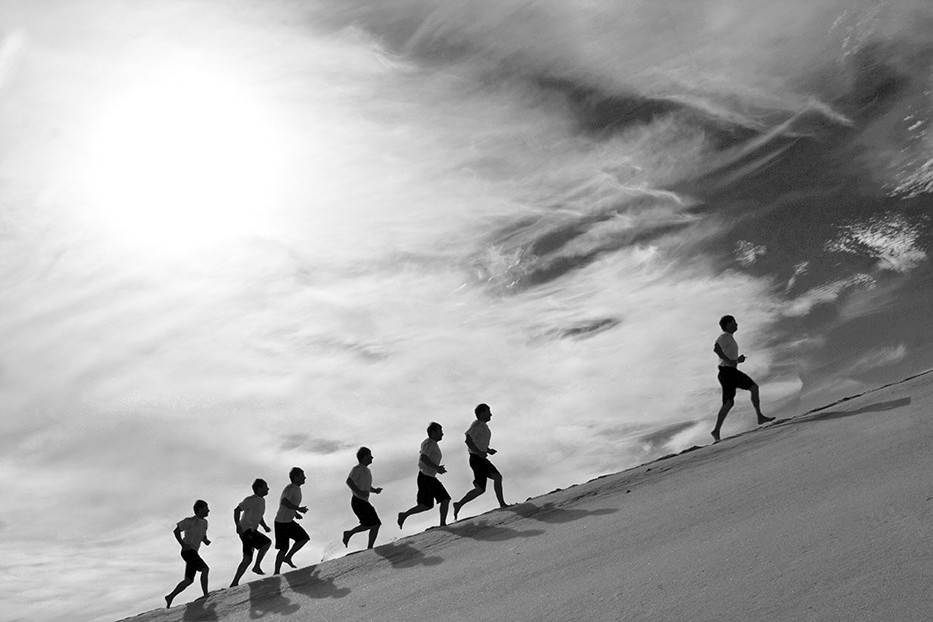It’s a big week for me. I’m off on my annual pilgrimage to the TED Conference, where I’ll lead a workshop based on the principles I’ve developed in my new book, Good People, which launches today. This week also marks the 10th anniversary of a business I co-founded and the 51st wedding anniversary of my parents (though when I called to congratulate them, my mom reminded me that every day should be an anniversary we celebrate — “and don’t forget that about Mother’s Day,” she said wryly). That’s why this week I’m also making a point to reflect on how fortunate I am and to acknowledge the goodness of the people who helped me get here.
I didn’t fully understand or recognize my first encounter with goodness. I was 15 years old, away from my hometown of Newfoundland, and my summer job was selling picture frames door-to-door in a suburb of Toronto. At the end of one long day, an elderly woman whose door I had knocked on invited me into her home for a glass of iced tea and conversation. I was desperately hoping to go home with a sale, but I left her house with something much more valuable. Maybe I was thirsty, maybe she was lonely, but as I sat in her living room intently listening she gave me one critical piece of advice: Whatever you do in life, she said, make sure you surround yourself with good people — and then try to do the same for others. You must love that thing you are doing, but love even more the people you are doing it with. One more thing: I believe in you, she said, and in your future success. For whatever reason, I believed her, too.
Goodness is far trickier to define than it is to experience. More than something we can see or touch, the word and the feeling are closer to perceiving an ephemeral scent we love. We lack a clear vocabulary for goodness, but we also know when it’s around us. Goodness makes us feel more human, more alive, more inspired.
Authentic goodness is a trait that goes much deeper than competency, achievement, and skills. Goodness thrives thickly when we help other people become fuller, truer versions of themselves. Along the way, we become better people, too.
Starting with the elderly woman in Toronto, I’m fortunate to have had some extraordinary mentors over the years who decided to believe in me. I’ve also come to realize that great mentorship isn’t entirely defined by any job or title. We all play characters in our lives, usually multiple ones — boss, board member, father, coach, son, brother. In its highest form, mentorship means breaking from character. The boss-employee, teacher-student, or parent-child dynamic and mindset is replaced by a human-to-human interaction.
The greatest leaders, the most respected people, the most accomplished virtuosos and artists, and — yes — the very best mentors don’t ever forget this. As one of our greatest jazz musicians, Herbie Hancock, once told me, “When I play my music, I always remember that I am first and foremost a human being, and I just happen to be a human being who is a musician. What defines me is my humanness and that is what I hope is expressed in the music.”
That’s why whatever success I’ve had in my life I credit mostly to the care and support of my parents and family, and to the counsel I’ve received from some extraordinary role models, teachers, and mentors. Yes, some talents you’re born with; my mentors’ counsel has helped me hone the innate skills I have needed for my career and life. But more crucial and profound are the lessons my mentors ingrained in me that shaped my character and values in areas including truth, compassion, and wholeness. Reframing success as wholeness is one of life’s biggest lessons — to be at peace knowing that we have tried our best with love, respect, and wisdom to do the best that we can to improve ourselves and others.
Tom Peters once said that great leadership isn’t about attracting lots of followers. It’s about helping to develop other leaders. Very simply, you can’t build leaders without imprinting on them good character and values. This goes well beyond business. Outside of the office, every one of us has the capacity to practice goodness whenever we can. We are all constantly learning from one another and from our shared collective experience. At the end of the day, every one of us is both a mentor — and a mirror.
What would happen if we committed to goodness as a movement? What would happen if, as a friend and mentor once asked me, we made it one of our life goals to positively influence the character and the lives of just ten people? What if they in turn helped bring out the best in another ten people, and that ten did the same again? “It sounds audacious,” he said, “but we could collectively change the world.”
Do you accept this challenge? Starting today, will you seek out ten (or more) people you believe in, and who you can commit to shaping, elevating, and encouraging so that they can become the fullest, truest versions of themselves? Will you ask them to do the same for ten other people?
Whose ten lives will you change?
Anthony Tjan is CEO, Managing Partner and Founder of the venture capital firm Cue Ball, former vice chairman of the advisory firm Parthenon, co-author of the New York Times bestseller Heart, Smarts, Guts, and Luck (HBR Press, 2012) and author of Good People (Penguin Publishing Group, 2017).
Originally published at medium.com


